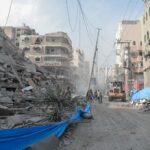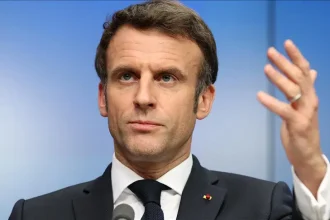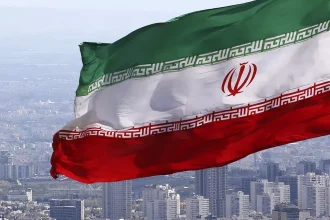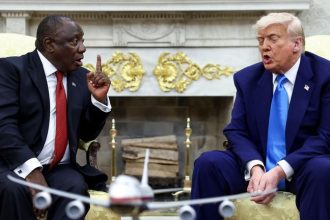In his first public appearance since the ceasefire, Iran’s Supreme Leader Ayatollah Ali Khamenei on Thursday dismissed US President Donald Trump’s claims about the effectiveness of American strikes on Iranian nuclear sites, calling them exaggerated while declaring victory over Israel.
“The American president exaggerated events in unusual ways, and it turned out that he needed this exaggeration,” Khamenei said in a televised address carried by state media. He asserted that US strikes “did nothing significant” to Iran’s nuclear facilities, claiming instead that “the Islamic republic won, and in retaliation dealt a severe slap to the face of America” – a reference to Iran’s missile strike on Al Dhafra Air Base, the largest US military installation in the Middle East.
The Supreme Leader congratulated Iranians for their “victory over the fallacious Zionist regime,” alleging that Israel had “almost collapsed” from Iranian strikes. His remarks come amid conflicting claims about the war’s outcome and the extent of damage to Iran’s nuclear program.
The 12-day conflict – the most direct and destructive confrontation between Iran and Israel – ended Tuesday with both sides declaring victory. Israeli Prime Minister Benjamin Netanyahu had hailed a “historic victory,” saying “we have thwarted Iran’s nuclear project.” He warned that Israel would act with equal determination against any Iranian attempts to rebuild nuclear facilities.
A brewing controversy in Washington surrounds the actual impact of US strikes. While Trump claimed the attacks “obliterated” key sites like the fortified Fordo facility and set back Iran’s nuclear program by “decades,” leaked US intelligence assessments reported by CNN suggest the damage was less severe – possibly delaying the program by only months without destroying critical components.
CIA Director John Ratcliffe offered a middle-ground assessment, stating “several key Iranian nuclear facilities were destroyed and would have to be rebuilt over the course of years.” The Israeli military described delivering a “significant” blow while acknowledging it was “too early” for full damage assessment.
Unanswered questions persist about whether Iran relocated approximately 400 kilograms of enriched uranium before the strikes. Iranian Foreign Ministry spokesman Esmaeil Baqaei told Al Jazeera that “nuclear installations have been badly damaged, that’s for sure,” without providing specifics.
As the war derailed nuclear negotiations, Trump revealed plans to restart talks next week, suggesting the possibility of a peace agreement. “We may sign an agreement. I don’t know,” he told reporters, noting both nations were “tired, exhausted.” His special envoy Steve Witkoff expressed hope for “a comprehensive peace agreement.”
Iran maintains it seeks only peaceful nuclear energy, with officials signaling willingness to resume talks while defending its atomic rights. The human cost of the conflict became clearer as Iran reported 627 civilian deaths from Israeli strikes, while Israeli officials confirmed 28 fatalities from Iranian attacks. Tehran will hold a state funeral Saturday for slain commanders and nuclear scientists.
US Defense Secretary Pete Hegseth is scheduled to provide an updated damage assessment Thursday, with Trump dubbing him “war secretary” and saying he would “fight for the dignity of our great American pilots.” The conflicting narratives set the stage for continued geopolitical tensions even as the ceasefire holds.







